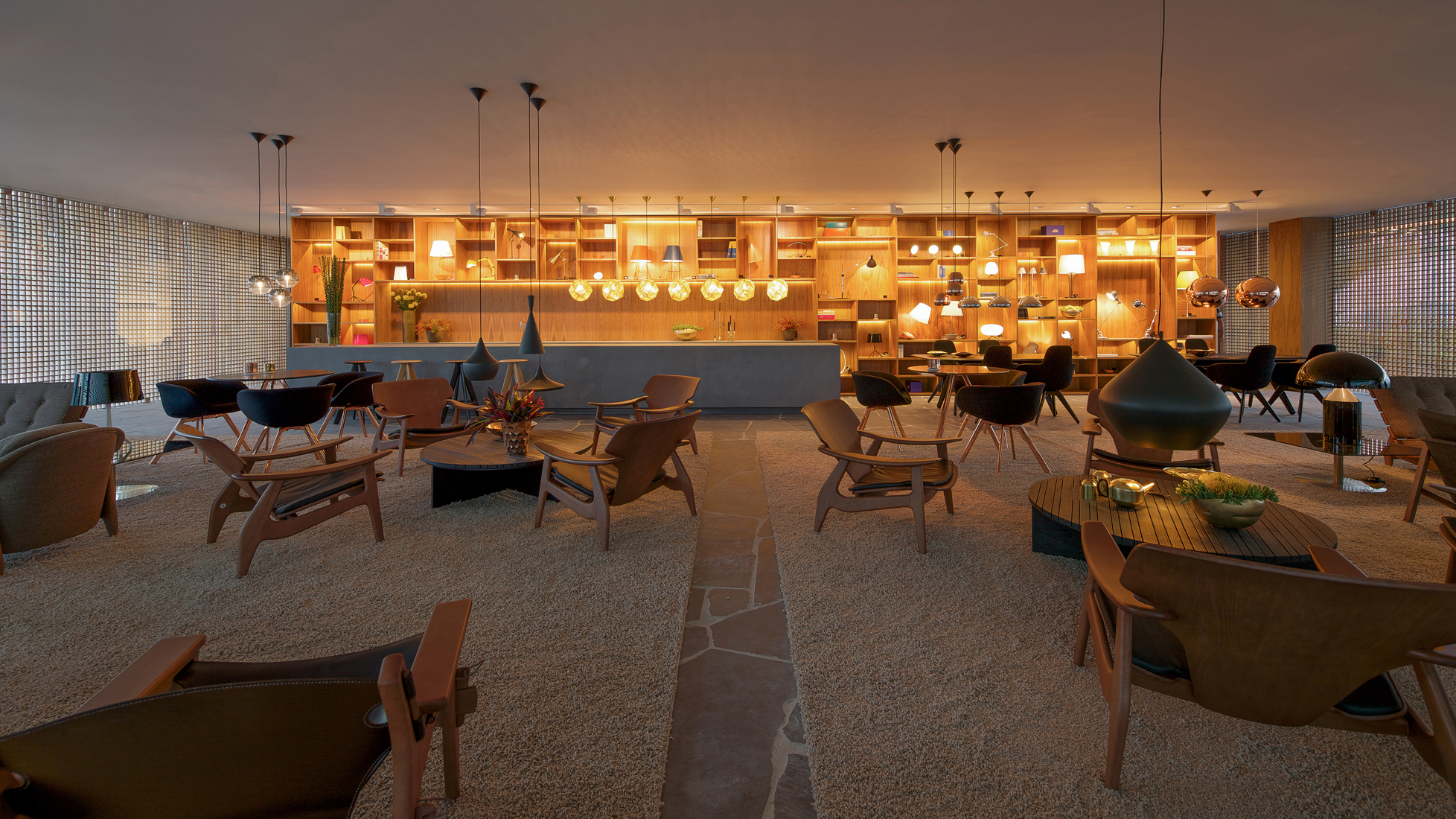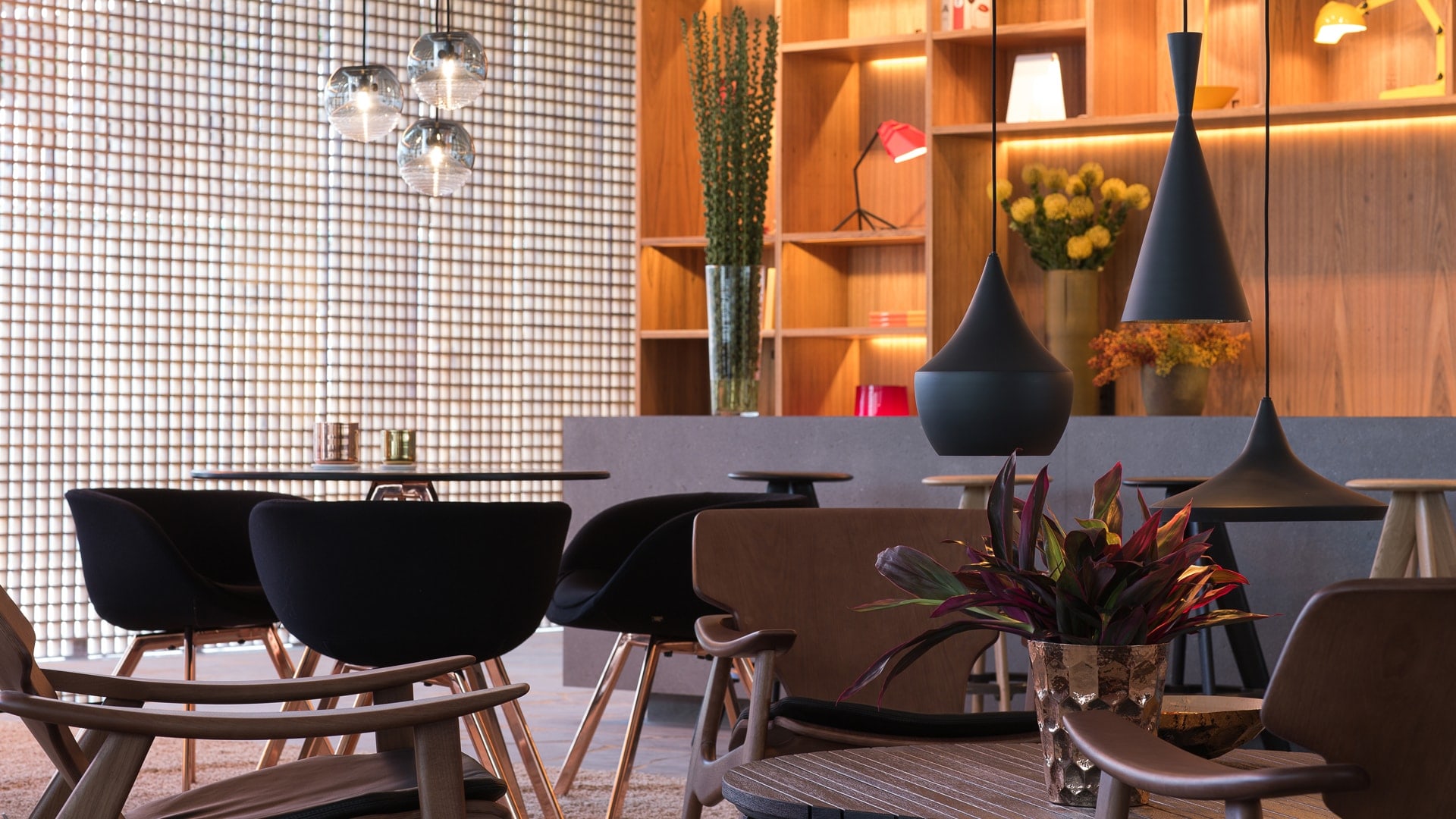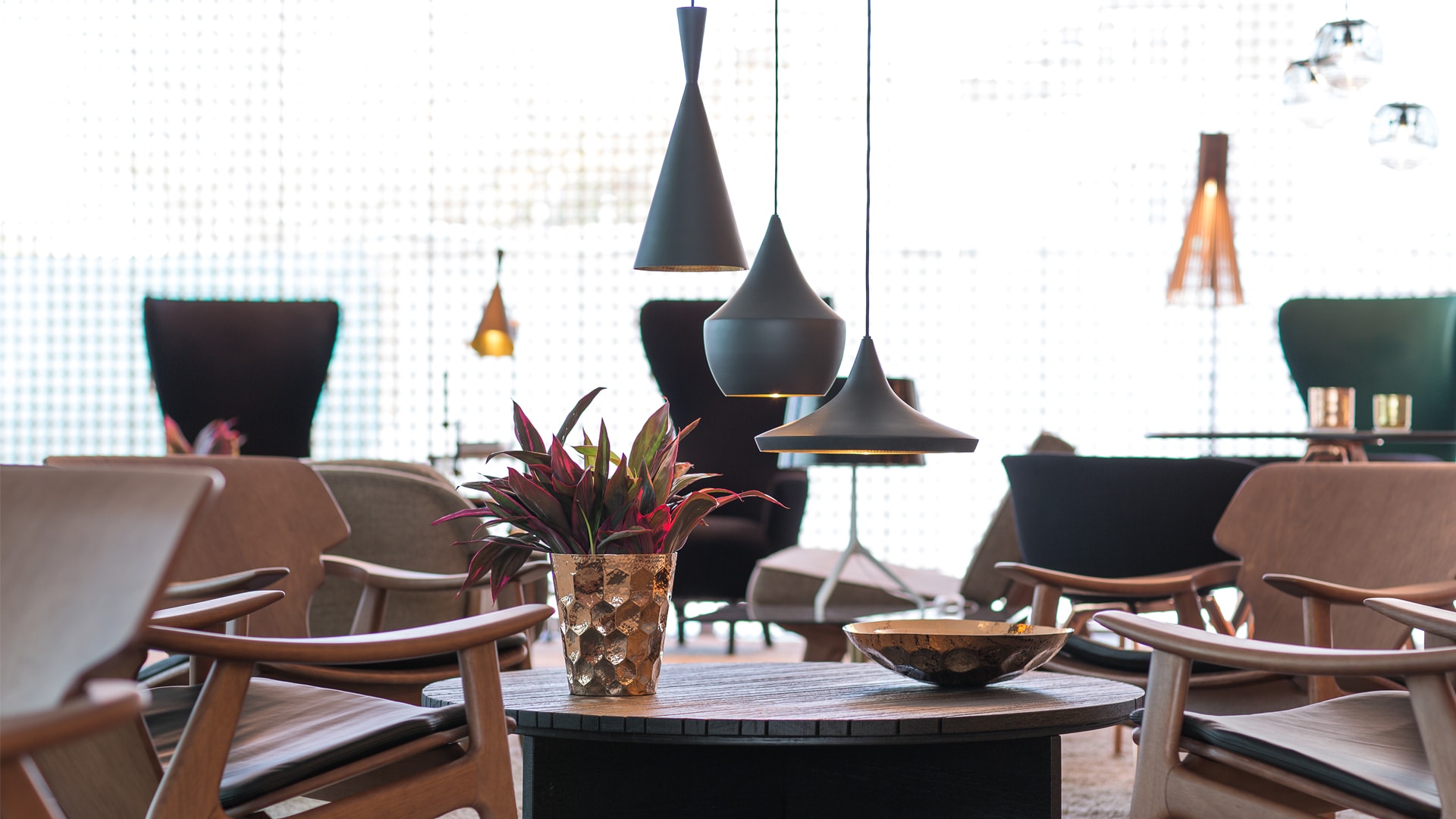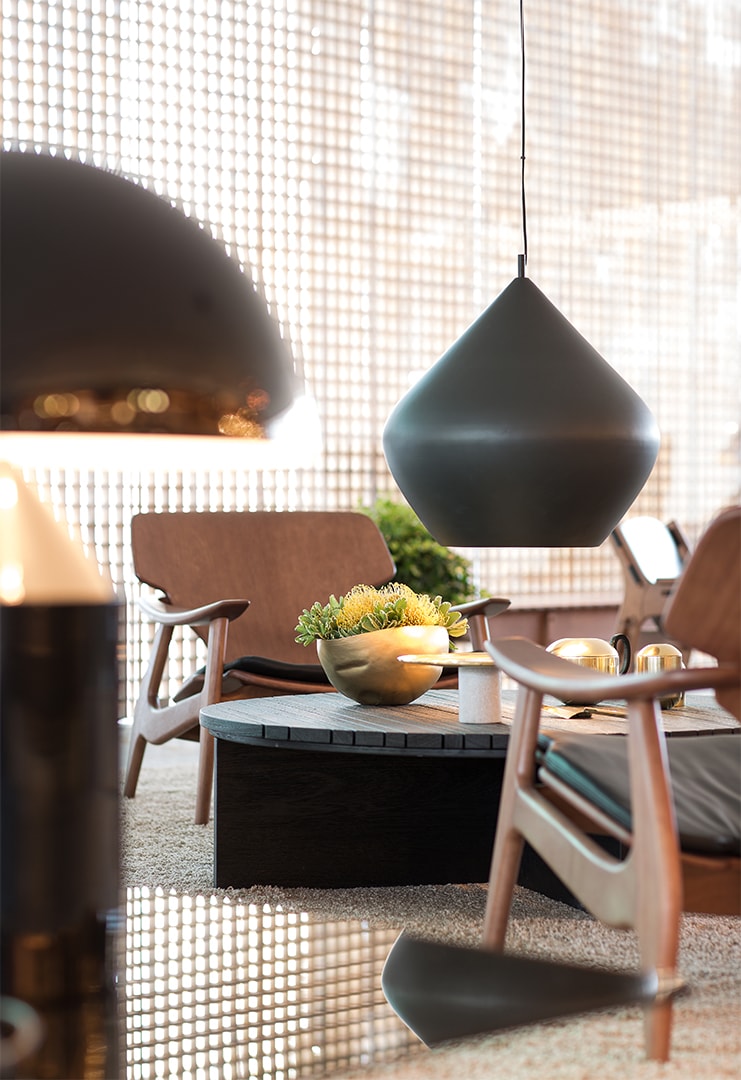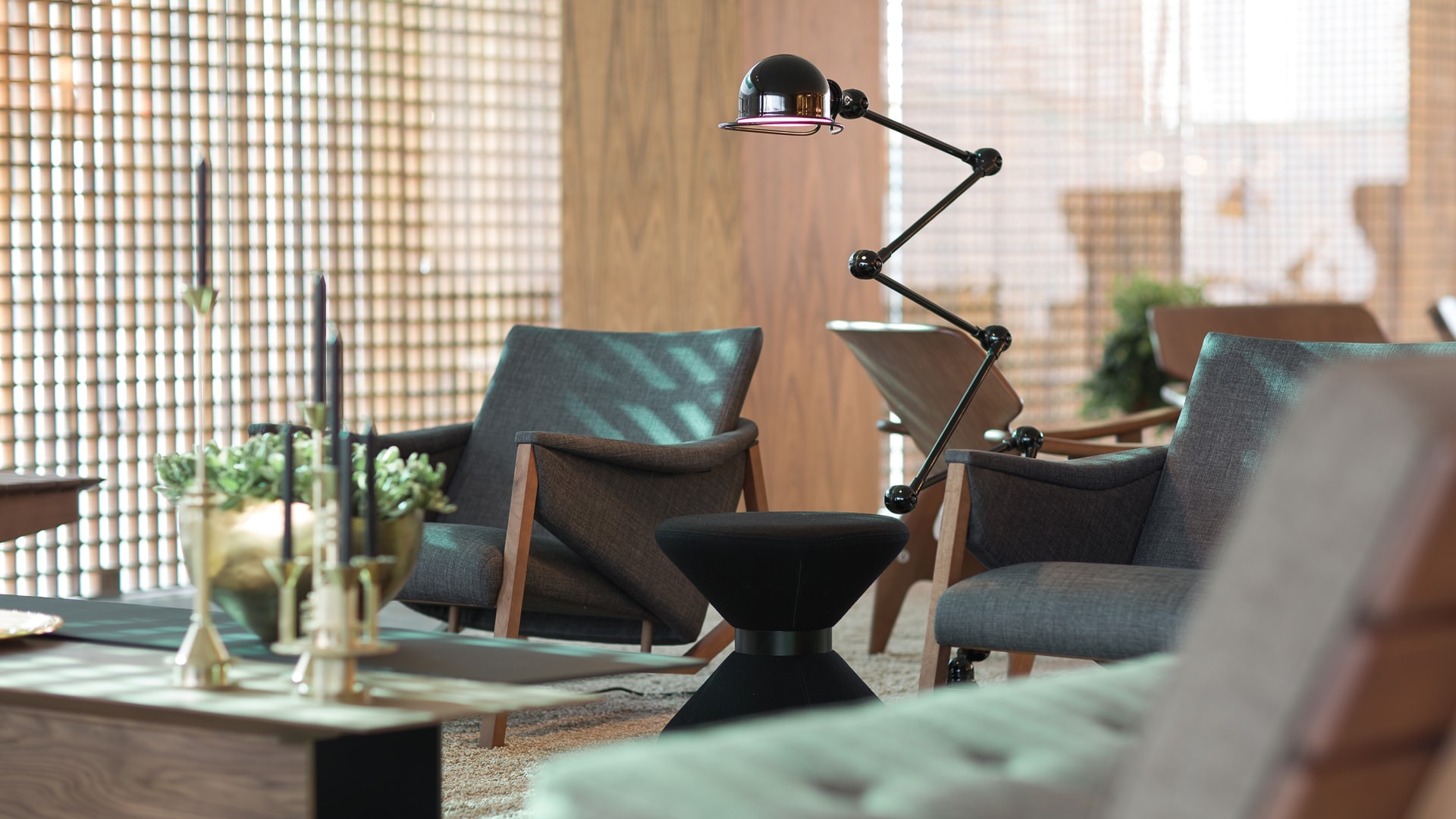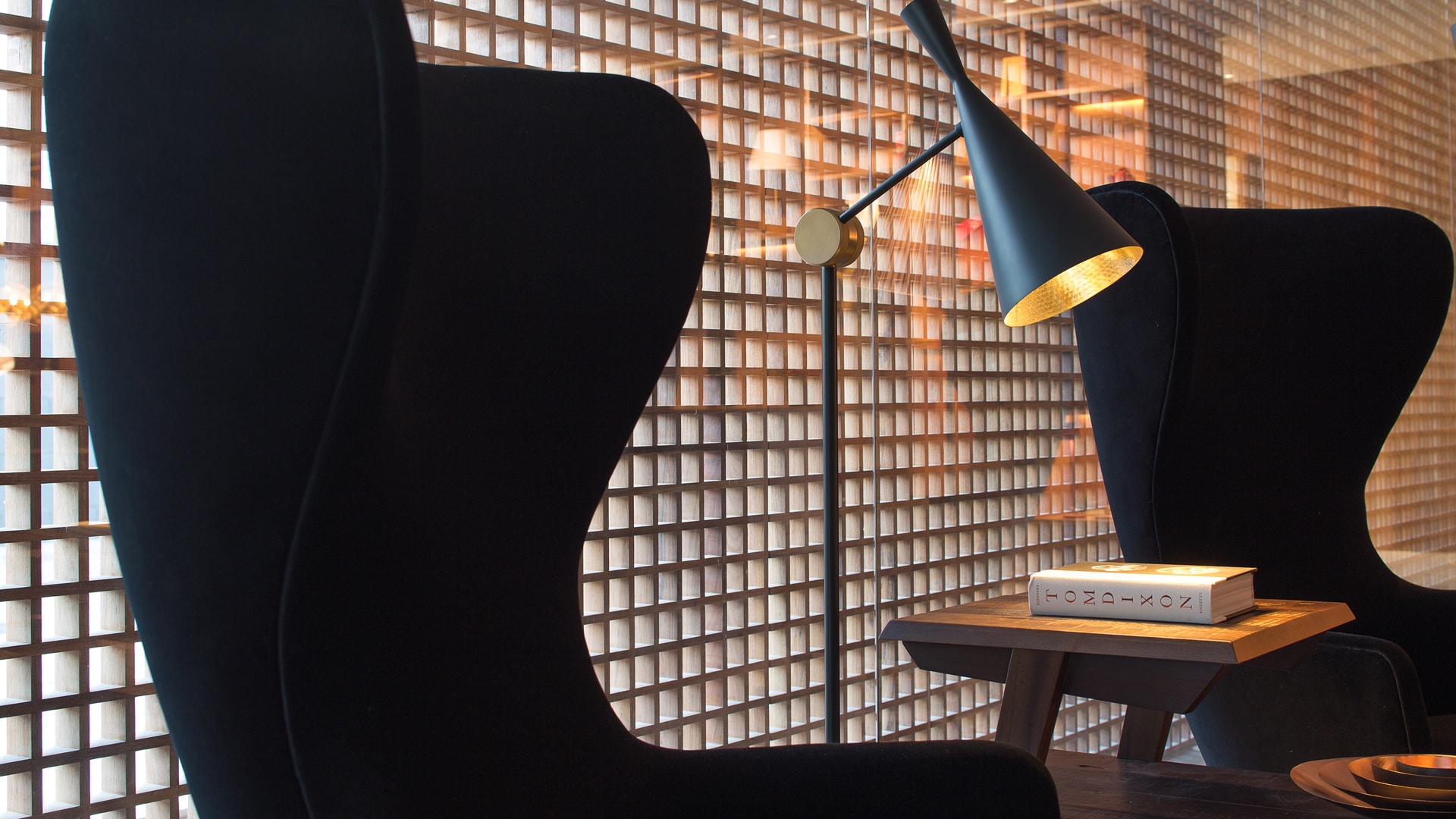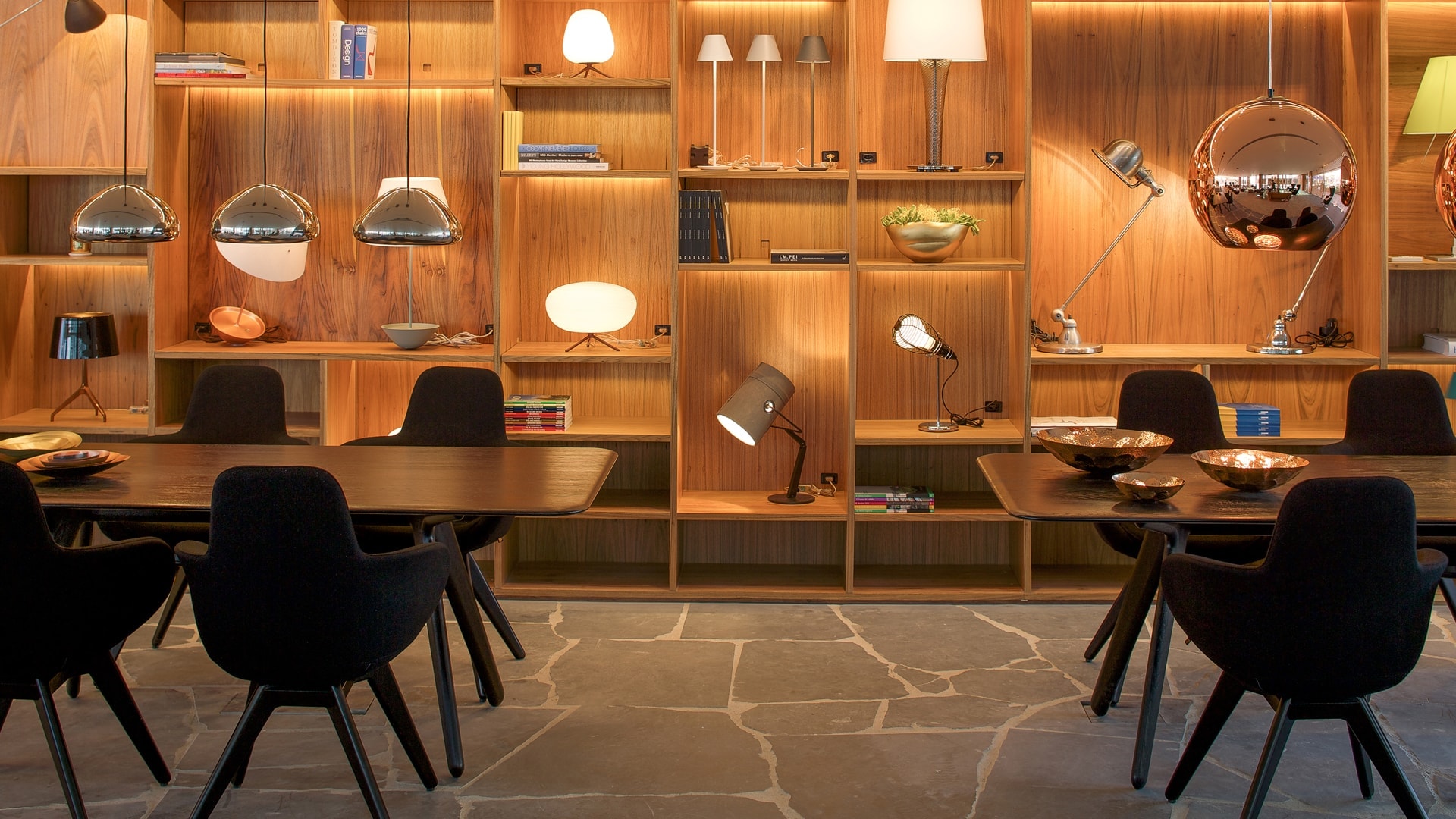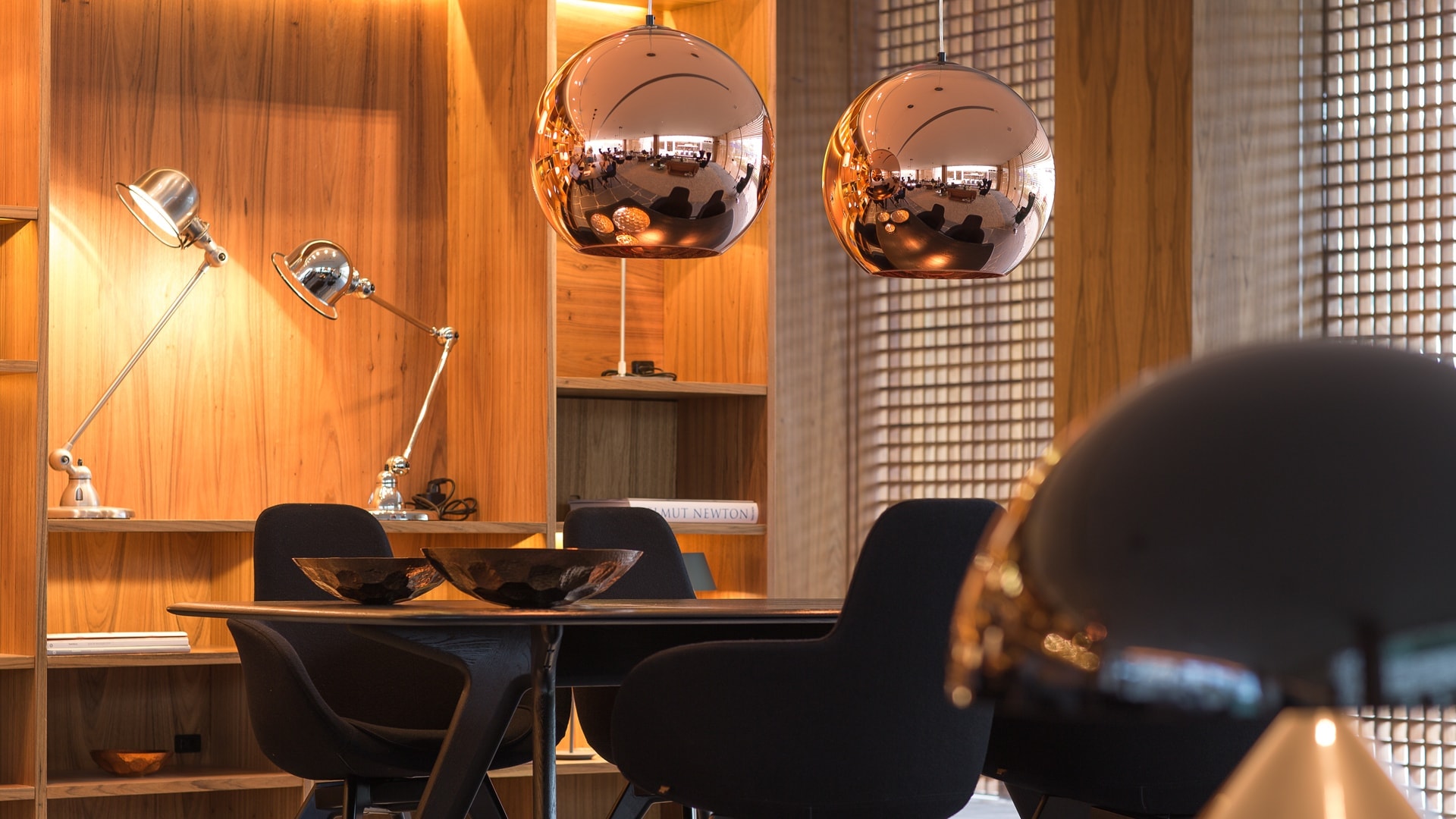A lighting fixtures and systems store which, instead of taking the lamps out of context and into an aseptic space, it rather creates environments for the products, as if being placed in a heartwarming domestic space. This was the main premise of the architectural project of the store Lumini in Rio de Janeiro, located at Casa Shopping.
The façade made with wooden mushrabiyah (muxarabi), a traditional element of Brazilian colonial and modern architecture, filters the light, and darkens the interior of the store. As such, the effect of each fixture can be seen by the clients within the showroom without losing any of the relationship to the outdoors, guaranteed by the glass façade and the visual transparency offered by the wooden lattice. The mushrabiyah also give unity to the façade. Besides the large exhibit room, two closed dark rooms make up the sales space of the store program. These rooms will display the effects of the light fixtures, special projects, and automation strategies. Furthermore, there is an administrative area for 12 employees, with restricted access to the public.
The social areas within the store, composed of furniture created by designers like Sergio Rodrigues and Tom Dixon, are used not only to give the products a context, but also to service the clients that can sit there as well. Thus, it was possible to create an informal relationship between salesperson and consumer, in a comfortable space surrounded by the lighting in exhibition.
The store Lumini in Rio sought a feeling of coziness, which is one of the striking characteristics of the products represented by the company. Thus, the architecture made use of natural materials such as a stone on the floor and the wood, for example, for the shelves.
The strategy of creating different environments made possible the versatility of the showroom as well, since that the space can be rearranged with the arrival of new products.
Lumini Rio transports the comfort and welcoming sensation of ‘home’ to the commercial space.
Mariana Simas
location> casa shopping . rio de janeiro . rj
project > november . 2013
completion > october . 2014
built area > 312 sqm
-
architect > marcio kogan
co–architects > diana radomysler . luciana antunes
architecture team > dimitre gallego . oswaldo pessano . renata furlanetto
communication team > carlos costa . laura guedes . mariana simas
interiors team > mariana ruzante
-
contractor > lar construtora
photographer > reinaldo cóser
A lighting fixtures and systems store which, instead of taking the lamps out of context and into an aseptic space, it rather creates environments for the products, as if being placed in a heartwarming domestic space. This was the main premise of the architectural project of the store Lumini in Rio de Janeiro, located at Casa Shopping.
The façade made with wooden mushrabiyah (muxarabi), a traditional element of Brazilian colonial and modern architecture, filters the light, and darkens the interior of the store. As such, the effect of each fixture can be seen by the clients within the showroom without losing any of the relationship to the outdoors, guaranteed by the glass façade and the visual transparency offered by the wooden lattice. The mushrabiyah also give unity to the façade. Besides the large exhibit room, two closed dark rooms make up the sales space of the store program. These rooms will display the effects of the light fixtures, special projects, and automation strategies. Furthermore, there is an administrative area for 12 employees, with restricted access to the public.
The social areas within the store, composed of furniture created by designers like Sergio Rodrigues and Tom Dixon, are used not only to give the products a context, but also to service the clients that can sit there as well. Thus, it was possible to create an informal relationship between salesperson and consumer, in a comfortable space surrounded by the lighting in exhibition.
The store Lumini in Rio sought a feeling of coziness, which is one of the striking characteristics of the products represented by the company. Thus, the architecture made use of natural materials such as a stone on the floor and the wood, for example, for the shelves.
The strategy of creating different environments made possible the versatility of the showroom as well, since that the space can be rearranged with the arrival of new products.
Lumini Rio transports the comfort and welcoming sensation of ‘home’ to the commercial space.
Mariana Simas





